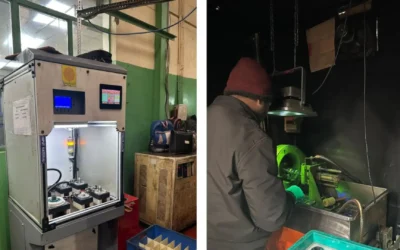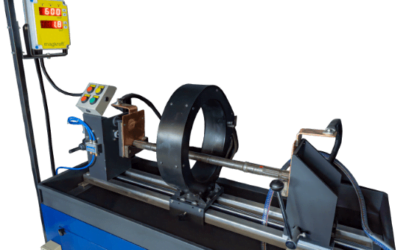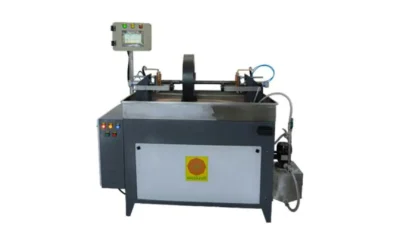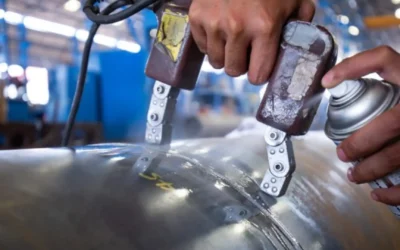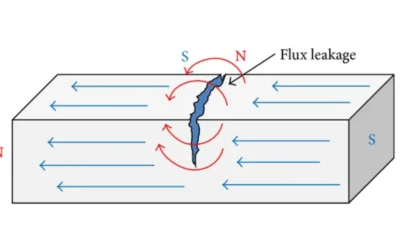Homepage > Blogs
Addressing Common Challenges in NDT: Solutions by Magkraft
Non-destructive testing (NDT) is critical in ensuring the integrity and reliability of materials and components across various industries. However, like any technical field, NDT has challenges that can impact inspection outcomes and efficiency. In this article, we'll...
Exploring the Applications of Eddy Current Testing: A Focus on Magkraft’s Offerings
Eddy Current Testing (ECT) is a widely used non-destructive testing (NDT) technique to inspect conductive materials for surface and subsurface defects. With its versatility and effectiveness, ECT finds applications across various industries, including aerospace,...
Cost-Effectiveness and Safety: The Dual Benefits of Using Magnetic Crack Detectors in Your Operations
Cost-Effectiveness and Safety: The Dual Benefits of Using Magnetic Crack Detectors in Your Operations In the modern industrial landscape, where safety and cost management are paramount, non-destructive testing (NDT) tools like magnetic crack detector become critical....
The Evolution of Non-Destructive Testing: How Magnetic Crack Detectors Are Revolutionizing the Industry
The Evolution of Non-Destructive Testing: How Magnetic Crack Detectors Are Revolutionizing the Industry Non-destructive testing (NDT) has been a cornerstone in aerospace, automotive, construction, and manufacturing industries, ensuring safety and integrity without...
Choosing the Right Magnetic Particle Inspection Equipment: A Buyer’s Guide
Choosing the Right Magnetic Particle Inspection Equipment: A Buyer's Guide Magnetic Particle Inspection (MPI) is an indispensable non-destructive testing (NDT) method used to detect surface and subsurface flaws in ferrous materials. It plays a pivotal role in ensuring...
Exploring the Latest in Magnetic Particle Testing Machine
Exploring the latest in Magnetic Particle Testing Machinery Magnetic Particle Testing (MPT) is a crucial non-destructive testing (NDT) technique used to detect surface and subsurface flaws in ferrous materials. It plays a vital role in ensuring the integrity of...
MPI Testing Machine Maintenance: Tips to Ensure Reliable Results
MPI Machine Maintenance: Tips to Ensure Reliable Results Maintaining the reliability and accuracy of Magnetic Particle Inspection (MPI) testing machines is essential for consistently obtaining precise results in flaw detection. In this guide, we'll delve into key...
The Essential Role of MPI Machines in Magnetic Particle Inspection: Magkraft’s Cutting-Edge Solutions
The Essential Role of MPI Machines in Magnetic Particle Inspection: Magkraft's Cutting-Edge Solutions Magnetic Particle Inspection (MPI) is an invaluable non-destructive testing method employed across various industries to assess the structural integrity and safety of...
Fundamentals of Magnetic Particle Inspection
Fundamentals of Magnetic Particle Inspection (MPI) stands as a non-destructive technique employed to detect surface & sub surface defects in ferrous components. This method proves to be both swift and comparatively straightforward in its application, with less...
Magnetic Field Generation
Magnetic Field Generation In the early nineteenth century, Hans Christian Oersted made a pivotal observation: an electric current coursing through a wire could alter the orientation of a nearby compass needle. This observation implied that the wire's electric current...

